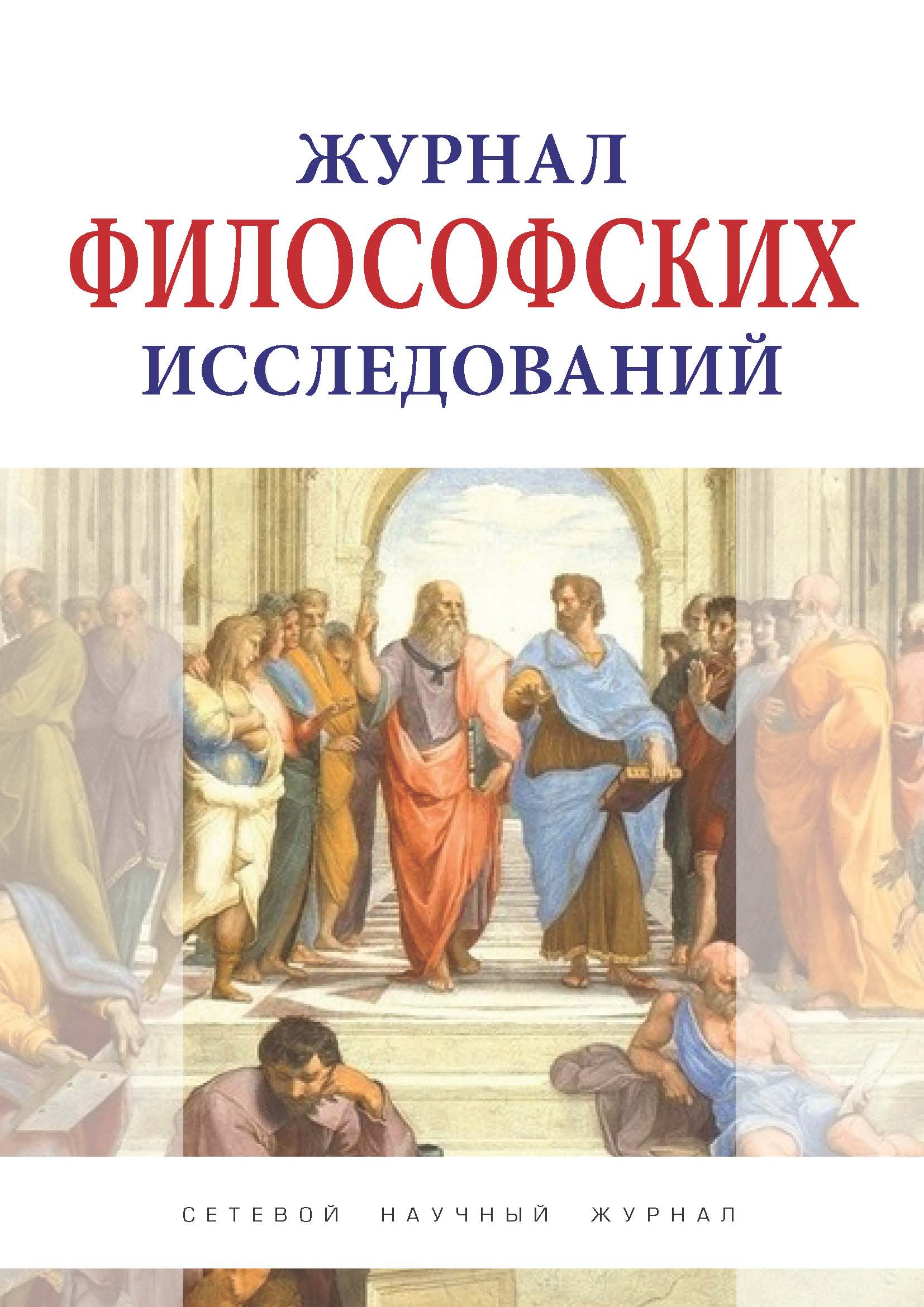Bauman Moscow State Technical University (professor)
Moscow, Russian Federation
The subject of the article is the modern conception universal philosophy as synthesis of the positive aspects of the main traditional philosophical theories: objective idealism, subjective idealism, materialism and dualism. It is assumed that as a result of such a synthesis, these directions will not contradict, but complement each other, as aspects of a single philosophy. In it, objective idealism should take the place of the most profound and consistent solution of the ontological side of the main question of philosophy, and subjective – the solution of its epistemological aspect, because knowledge about objective reality directly depends on accumulated knowledge. The materialists were right in emphasizing the ontological primacy of material reality in relation to the emergence of man as a being with a developed brain and consciousness as an informational activity of the brain. The dualists proved to be right in emphasizing the equal ontological status of matter and consciousness as two relatively independent realities with their special properties and patterns. The basis of the new unified universal philosophy includes the following principles: 1) objective reality as a whole has a two-level structure, its basic level is not the material world, but the world of objective possibilities; 2) human consciousness functions relatively independently of material reality; its main goal is the construction of subjective reality, as the most obvious for consciousness and therefore acting for it as a standard in the assessment of objective reality, especially material reality; 3) objectification of the content of consciousness is possible only after its comparison with the content of objective reality in the course of practical activity; 4) the world of objective possibilities is a sensually unobservable reality for consciousness, it can be comprehended only with the help of thinking; 5) the most rigorous scientific reality for consciousness is the theoretical reality of science constructed by thinking, the content of which is identical to the world of objective possibilities, strictly described within the framework of various scientific theories; 6) the sensory and empirical reality of consciousness cannot be completely identical to material reality, and therefore between them there is always only partial identity and similarity; 7) such an identity is possible only between the theoretical reality constructed by thinking and its description with the help of thinking within the framework of scientific theories. Within the framework of modern universal philosophy, materialism turns out to be a rather particular theory in the field of ontology and completely untenable in the field of epistemology when interpreting consciousness as a reflection of material reality. The concept of cognition as a reflection of matter by consciousness is incorrect not only in relation to rational cognition (as empirical, but especially theoretical), but also in relation to sensory cognition. The interpretation of consciousness and cognition as a reflection of reality completely contradicts real science, the facts of the constant presence of competing theories in all areas of science throughout the history of science, including its modern stage.
a new philosophy conception, idealism, materialism, dualism, being, consciousness, science
1. Anisov A.M. Sovremennaya logika i ontologiya: v 2 kn. Kn.1. M.: URSS, 2022. EDN: https://elibrary.ru/HJMKWB
2. Anohin P.K. Ocherki po fiziologii funkcional'nyh sistem. M.: Kniga po trebovaniyu. 2013.
3. Anohin K.V. Kognitom: v poiskah fundamental'noy neyronauchnoy teorii soznaniya //Zhurnal vysshey nervnoy deyatel'nosti. 2021. T.7. №1. S.39-71. DOI: https://doi.org/10.31857/S0044467721010032; EDN: https://elibrary.ru/TTTGKL
4. Geyzenberg V. Fizika i filosofiya. Chast' i celoe. M.: Nauka. 1989.
5. Nalimov V. V. Razbrasyvayu mysli. V puti i na pereput'e. M.: Progress-Tradiciya, 2000. EDN: https://elibrary.ru/UGNKGT
6. Lebedev S.A. Filosofiya i metodologiya nauki. Aktual'nye problemy. M.: Izdatel'stvo Moskovskogo universiteta.. 2024.
7. Artemenkov A.A. Psihofiziologicheskaya problema : edinstvo material'nogo i ideal'nogo v cheloveke // Sovremennye filosofskie issledovaniya. 2024. №1. S.96-112. DOI: https://doi.org/10.18384/2949-5148-2024-1-96-112; EDN: https://elibrary.ru/ZBUREY
8. Uhtomskiy A.A. Dominanta. SPb: Piter.2019.
9. Lebedev S.A. Predmet i priroda filosofskogo znaniya // Vestnik Moskovskogo universiteta. Seriya 7: Filosofiya. 2002. № 5. S. 21-52. EDN: https://elibrary.ru/TNSFAT
10. Lazarev F.V., Lebedev S.A. Filosofskaya refleksiya: suschnost', tipy formy // Voprosy filosofii. 2016. № 6. S. 15-28. EDN: https://elibrary.ru/WGEWIH
11. Lebedev S.A. Filosofiya i metodologiya nauki. M.: Akademicheskiy proekt. 2021. EDN: https://elibrary.ru/EMYCUL
12. Lebedev S.A., Rubochkin V.A. Istoriya i filosofiya nauki. M.: Izdatel'stvo Moskovskogo universiteta. 2010. EDN: https://elibrary.ru/QWVNON
13. Lebedev S.A. Filosofiya nauki. Uchebnoe posobie. M.: Yurayt. 2011.
14. Lebedev S.A. Filosofskie razmyshleniya (bytie, soznanie, istina, znanie nauka) // Zhurnal filosofskih issledovaniy. 2022. T.8. № 4. S. 16-22. EDN: https://elibrary.ru/MQOMIT
15. Lebedev S.A. Predmet i struktura sovremennoy filosofii nauki //Vestnik Moskovskogo universiteta. Seriya 7: Filosofiya.2009. № 1. S. 3-25. EDN: https://elibrary.ru/KVGJSZ
16. Lebedev S. A., Nazarov A. A. Konstruktivistskaya koncepciya chuvstvennogo poznaniya // Zhurnal filosofskih issledovaniy. 2022. № 1. S. 3—11. EDN: https://elibrary.ru/YUMRCC
17. Lebedev S.A. Ob'ektivnaya i sub'ektivnaya real'nost', ih struktura i sootnoshenie // Zhurnal filosofskih issledovaniy. 2022. T.8. №3. S.3-7. EDN: https://elibrary.ru/YRCVQC
18. Lebedev S.A. Sovremennaya filosofiya nauki. M.: Prospekt. 2023. EDN: https://elibrary.ru/ZHMNDP
19. Lebedev S.A. Filosofskaya ontologiya i ontologiya nauki//Zhurnal filosofskih issledovaniy.2023.T.9. № 1.S. 9-20. EDN: https://elibrary.ru/GPTXFF
20. Lebedev S.A. , Il'in V.V., Gubman. B.L. Vvedenie v filosofiyu. Uchebnoe posobie. M.: Prospekt. 2025.
21. Lebedev S.A., Minakov A.A. Chuvstvennoe poznanie v nauke//Gumanitarnyy vestnik. 2023. № 4 (102).
22. Lebedev S.A. Konstruktivnaya priroda empiricheskogo znaniya v nauke //Sovremennye filosofskie issledovaniya. 2023. № 3. S.29-50. DOI: https://doi.org/10.18384/2949-5148-2023-3-29-50; EDN: https://elibrary.ru/DMQBQP
23. Lebedev S.A., Hiev I.R. Vidy nauchnyh teoriy i kriterii ih istinnosti//Zhurnal filosofskih issledovaniy. 2024. T.10. № 2. S. 25-34. EDN: https://elibrary.ru/PZGBQU
24. Lebedev S.A., Kos'kov S.N. Konvencional'nost' i konsensual'nost' nauchnogo znaniya kak epistemologicheskaya norma//Zhurnal filosofskih issledovaniy. 2020. T.6. № 3. S. 12-21. EDN: https://elibrary.ru/JFPRSL
25. Lebedev S.A. Konstruktivistskaya koncepciya nauchnogo poznaniya // Vestnik Tverskogo gosudarstvennogo universiteta. Seriya: Filosofiya. 2023. № 2(64). S. 5-14. DOI: https://doi.org/10.26456/vtphilos/2023.2.005; EDN: https://elibrary.ru/UMICEY
26. Lebedev S.A. Filosofiya. Metodologiya. Nauka. Izbrannye stat'i. M.: Prospekt. 2023.
27. Hoking St. Mir v orehovoy skorlupke (per. s angl. A.G. Sergeeva). M.: Amfora. 2007. EDN: https://elibrary.ru/QJTIYN
28. Hoking St., Penrouz R., Shimoni A, Kartrayt N. Bol'shoe, maloe i chelovecheskiy razum. M.: Amfora. 2008.






